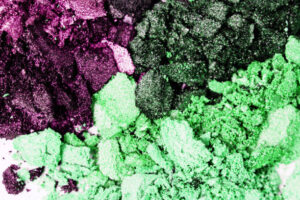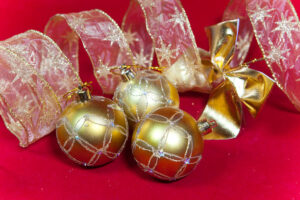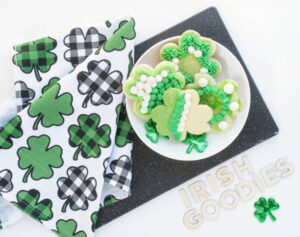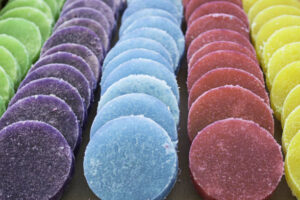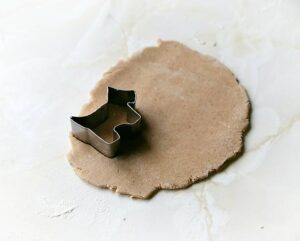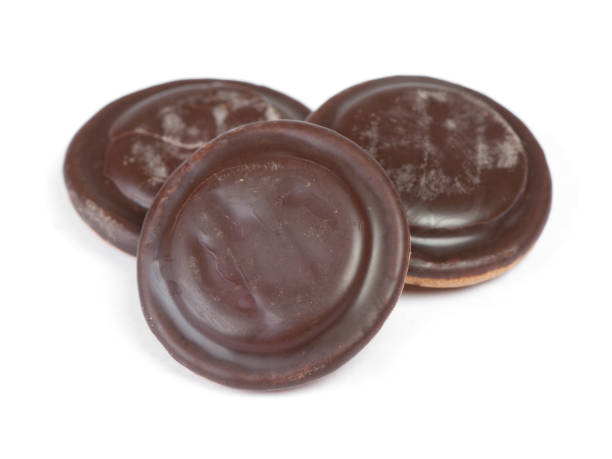
We at Vaquform like to think that we know who our machines are for. Vaquform, for example, would be a great asset for cosplayers who want to make costume pieces or props that could take ages to create using other methods like 3D Printing and Foamsmithing. This is only one of many markets that we serve.
Vaquform is a very popular product in the chocolate-making community. It has even become our most profitable market. Many chocolatiers have sent us photos, videos, and messages showcasing their use of Vaquform to create beautiful, unique pieces. They also tell us that it’s been a blessing to their business. The community is growing, and we are all amazed at how Vaquform slowly incorporated itself into the chocolate-making industry.
GETTING STARTED
The professional chocolatier has many tools to create their products. Some have laboratories with the latest appliances, a team of experts to assist them in their process, or even access to top-quality ingredients. You may want to create ambitious and over-the-top pieces. As this is a beginner’s guide, we will start with the basics. We will assume that you have no or limited access to the work of professionals. You’ll have to learn to walk before running. Once you get to know the Vaquform and are comfortable with it and how it works, this won’t be an issue.
We’ll begin with a one-part, simple mold. Pour the chocolate into the mold, let it cool, then pop it out.
FORMING TOOL
The first thing you’ll need is your forming or buck tool. You will use this to transform your copy onto the plastic sheet. Often, makers will create forming devices using different fabrication methods such as 3D printing, CNC milling, or sculpting. This is a topic for another article, but in this guide, we will use more accessible ways.
They come in a variety of sizes and shapes, so you can be sure to find the magnet you need. We’ll use fruit-shaped magnets for this guide. Since refrigerator magnets are already magnetic, you won’t need to worry about pieces moving during cycles. The attractions also do not have any deep areas or undercuts, which are important when preparing tools for forming.
We can now prepare the machine to form.
MACHINE PREP
Load your plastic sheet on the frame once your Vaquform is assembled, plugged in, and powered. We recommend clear PETG sheets for chocolate molds. You can purchase these on our website, vaquform.com. These sheets are easy to use and food grade. The sheets are available in thicknesses of 0.25, 0,50, 0.75, and 1mm, all pre-cut to fit your machine. After you’ve loaded your plastic sheet onto the frame, use the LCD menu to adjust the settings. Vaquform offers several materials presets, including ABS, Polystyrene, and PETG. Use the left and right buttons to navigate the PETG setting when the material selection is highlighted. The target temperature is 150C. You may wish to lower the temperature to 130C in order to avoid overheating the plastic sheet and causing it to stretch and distort.
You can leave the K and V settings as they are. In the future, we will publish a detailed article on these settings.
Press the center button once the temperature has been set. Wait until the orange button to the right begins blinking. Now is the time for you to lift the sheet frame and move it towards the heaters. Place your forming tool in the forming zone. Be sure to space them evenly so that you can get the proper pull. Once you’re happy with your tool placement, press the orange button. This will start the heating cycle.
Forming
It may take a little longer to heat the heaters if this is your first time using the machine or if it’s been awhile since you used it. It usually takes 5-6 minutes for the device to reach its right temperature. The LCD will occasionally give you a SLOW HEATING prompt. It is normal for the first heating cycle. The machine will provide you with a prompt to continue heating. At the bottom of your screen, you will see YES and NO. Click the left or the right button under the choice. Repeat this process if it happens again. You can also lower the PETG target temperature because of the initial heating cycle. The more exposed the plastic will be, the longer it takes to heat. You should be aware of how the plastic is drooping from the frame. This will have an impact on the quality of the pull, as I’ve already mentioned. It can cause webbing or even distort the plastic. You can avoid this by preheating the machine first. This can be done by running a heat-up cycle without using a plastic sheet.
The LCD screen allows you to monitor the temperature of plastics. The IR sensor on the lower left unit reads the temperature of the material in real-time. Once the target temperature has been reached, the machine will automatically turn on the vacuum. The plastic sheet should be lowered. Pull the handlebar all the way down. When you feel the side linkages lock and straighten, that’s when you know it is down. You will notice that the plastic begins to tightly wrap around your forming tool if you have done it correctly.
MULTIPLYING POWER TOOLS
If you have a mold but want to make more of a certain shape, or if you need an entire tray made up of that shape. Say you want to make more grapes, but the magnets used in this guide only had two grape shapes. It’s fine to use these two pieces, but it might seem wasteful to use a whole sheet of magnets with just two small pieces. It is best to duplicate the shapes. Makers would use 3D printers to make multiple copies of an item. Vaquform has developed a method of creating documents of tools using epoxy resins. We’ll still keep our materials accessible, as this is a guide for beginners. Plaster of Paris is a simple, inexpensive way to make more copies of an item. You can find it in any local craft or hobby store.
Follow the instructions on the packaging to prepare the plaster. Pour the dressing into the molds when it is ready. This may take some time, depending on the number of casts you require. The prep work and curing process will also add to the time. If the plaster has not cured flat, you may need to clean them to remove the excess.

